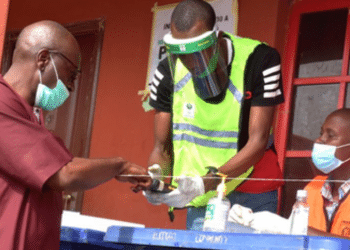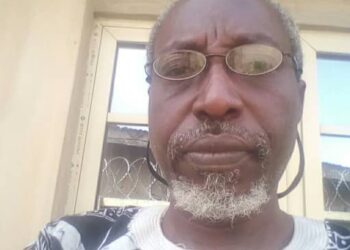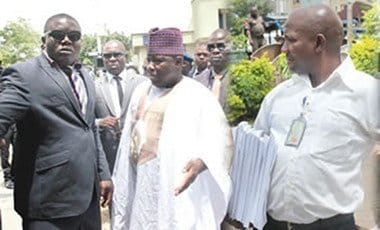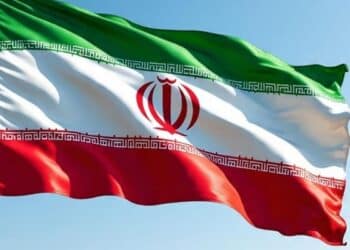Corruption is a cancer, a cancer that eats away at a citizen’s faith in democracy, diminishes the instinct for innovation and creativity.” — Joe Biden
All we have seen done in the fight against corruption has remained at the pedestrian level. There is little – if any – political will, to tame this monster or castrate. It’s left on the loose and on reckless rampage. Fighting corruption should go beyond rhetorics or lip service. It should serve as an instrument of change and recalibration of a society averse to corruption – the anti-progress enemy that has deprived the country of every good thing. It has retarded development and stifled progress. Rather than be used for a lofty purpose, it has been instrumentalized to silence, contain or control political opponents.
In our collective drive to stop the scourge which corruption has become in our land, the crusade needs to be stepped up to stop this virus from further spread, from eating off the parts that make up the ladder – that should provide the stairway – for our country to ascend to the peak of its destined greatness.
One of the fundamental elements to achieve this vision, is education. Education should be accorded priority and attract more funding from the government in light of UNICEF revelation that over 45 per cent of children between the ages of 6 and 11 out of school. Moreover, citizens need to be sufficiently educated to be able to sieve right from wrong and demand for what is right. They need to be empowered to contribute intelligently to the progress of their country through proper enlightenment.
The abstruse public service is undesirable as it encourages corruption. Transparency should be the keyword in all government businesses; from budgeting to award of contracts and even employment. This should be the watchword in all government businesses/transactions; starting from the conception of policy to budgeting; award of contracts and even employment. Lack of transparency is the first thing that sows the seed of corruption, absence of transparency, probity, justice and fair play are the greatest obstacles to the fight against corrupt practices in the public service. All government expenditures should be budgeted. Extra-budgetary spending should be criminalized and security votes should be completely phased out.
Absence of principles lay at the root of the integrity question in Nigeria, the back lash being the drift of the nation towards the precipice of all forms of corrupt practices. Public officers cannot fight corruption by seeking to occupy offices at all cost and by acquiescing to callous and corrupt demands of their god fathers and their superiors. Honesty has to be lifted to the position of a prized and rewarding national value. Criminals should not be celebrated as heroes on account of their wealth.
The fight against corrupt practices can come about successfully through the promptings of leaders and not rulers whose commitment are not tended to peoples’ trust but leaders that are ready to embrace and transmit honest habits, create equal opportunities for all citizens through open career to talents, reward honesty and integrity while sanctioning what is wrong.
Bringing on board few more stringent measures to the renewed WAR AGAINST CORRUPTION – all our financial institutions should collaborate and prune the procurement process to give room for transparent and accountable system of doing business. Though, it’s often said that criminals are always ahead as they devise means to circumvent laws, break barriers and test government’s resolve to combat crimes. But when severe deterrent (capital punishment) is served, we can heave a sigh of relief. Cash transactions should be completely abolished or minimized as much as possible. With electronic movements of cash, everything could be within watch and can be tracked.
Again, government must be resolute to eradicate corruption in our electoral process. If corruption thrives in the way leaders are brought to offices, we are indirectly bringing corrupt people to power and thus perpetuating corruption.
The media and civil society organizations should be mobilized and encouraged to be vigilant and honest watchdogs of all systems. Whistle-blowers must be encouraged and protected. Excessive bureaucracy and administrative gridlock in the syatem should be tackled. Reducing unnecessary process will cut down tendencies of corruption as people need not to bypass established rules to accomplish any task.
Removing the polity from the syndrome of bullion van/ghana-must-go bags even in the face of impeachment threats, appointment of investigation panel by Judges for the removal of Governors, loss of seats in the legislature for change of parties and so on, would be a plus for the fight against corrupt practices and enthroning integrity while exposing and prosecuting all corrupt officials would be a minus for lack of integrity?.
Instituting transparency in the country in our life time can only be achieved when we are ready to be our brother’s keeper by giving everyone his due, by treating every worker equally and by addressing the twin issues of greed and poverty. Benevolence and tolerance of each other should guide and colour our relationships, not greediness, animosity, hatred, and exploitative tendencies.
Government alone cannot fight corruption in the public service, it must be seen to be collective responsibility. We all know our corrupt practices and the prevailing social injustice in the society. We can right the wrongs if conscious efforts are geared towards (to completely spare a thought for) saving Nigeria, thinking and acting for the common good, restoring our cultural values and ethics of honesty. It is then our fight against corruption would yield the desired results and enthrone integrity in our system.
Leadership is core to getting things done. Leadership at all levels should be beyond reproach to provide the needed example. There should also be the will to apply sanctions. It has been canvassed severally that lack of will by the political leadership to prosecute the war against corruption takes us nowhere. The political leadership should be determined and it should be seen to be serious about it.
Lastly, at the root of achieving all these is a resolve by all Nigerians individually and collectively to not compromise. We must resolve to shun corruption entirely by taking a stand that ‘I will not take bribe again’ no matter the consequence. Time will come when there will be no takers!
*Ogundipe, former President Nigeria Union and African Union of Journalists writes from Abuja










